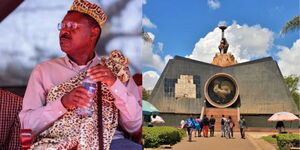The government has moved to tighten the noose on the use of fake certificates to acquire gainful employment by changing the law.
In the Kenya National Qualifications Framework (Amendment) Bill 2024, which seeks to replace that of 2014, the Kenya National Qualifications Authority (KNQA) has introduced a section mandating the formulation of a National Qualifications Framework binding regulatory bodies and the qualification awarding institutions.
The framework is expected to guide the State in the articulation, classification, development, accreditation, registration, quality assurance, and the monitoring and evaluation of national qualifications.
The authority, as a result, will be expected to establish, maintain, update, and publicise a central repository of all national and foreign qualifications.
"Every qualification awarding institution shall furnish the Authority with details of the qualifications awarded under each qualification offered within ninety days upon award of the qualification," read the notice in part.
The authority is also expected to establish a mechanism for evaluating local and foreign qualifications in conformity with the Kenya National Qualifications Framework (KNQF).
If passed into law, it will affect the Kenya National Examinations Council as well as all universities among other examination bodies.
Over the last month, the Ethics and Anti-Corruption Commission (EACC) stepped up its fight against fake certificates across the country including in government.
In January, the Commission nabbed Dolal Mohamed Mohamud, the Managing Director of Garissa Water and Sewage Company who was accused of forging his Kenya Certificate of Secondary Education (KCSE) Certificate to acquire a University Degree.
Since then, nearly three other senior officials have been netted over a similar offence since a report exposed that nearly 2,000 employees have been serving in Government having been employed after presenting fake papers.
Public Service Commission Chairperson Anthony Muchiri exposed the scourge while handing over the report on the authentication of academic and professional certificates to EACC and the Directorate of Criminal Investigations (DCI).
Muchiri further named the Ministry of Interior (headed by Kithure Kindiki) and the Ministry of Energy (headed by Davis Chirchir) as harbouring the most forged certificates alongside Kenyatta National Hospital and Moi Teaching and Referral Hospital.
EACC Chairperson Bishop David Oginde later revealed that individuals found to have secured jobs with fake certificates will be expected to refund their salaries.
“When the long arm of the law finally catches up with you, we shall recover all the money you got through that process,” he told the press at the time.
“Some countries are already beginning to blacklist our degrees and this would not be good for the young people of this country."












